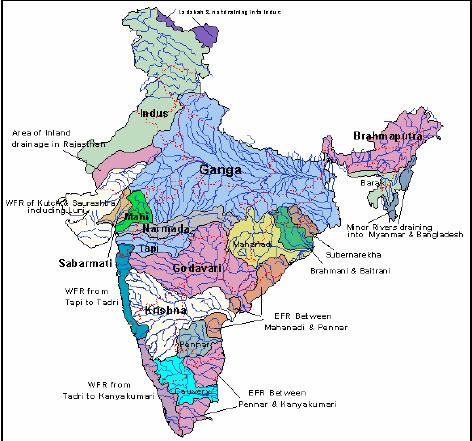/regions/india
India
The CII-GBC national awards for excellence in water management (2007)
Posted on 29 May, 2009 12:50 PMAs India's economic boom gathers more and more momentum with each passing year, industrial water and energy use and related environmental impacts are going to be among the most critical factors in resource sustainability debates in the country and elsewhere. The companies portrayed represent a wide spectrum of industry: paper, metals, agro-processing, synthetic fibre, petroleum, transport, cement, energy, fertilizer, soft drinks and more.
Made available to us by the CII, the presentations offered here describe in detail just how these varied companies have undertaken wide ranging and often innovative eco-friendly modifications to equipment and procedures both within the their plants and in the townships around them. Technical parameters, financial implications and gains/savings are all clearly documented, making them valuable resource materials for study amongst the industrial community in India and elsewhere. While specific industries can of course gain from the sector specific innovations, there is also a wealth of material on ideas whose utility cuts across sectors, potentially benefiting industry as a whole.
- Click here to view all the presentations
- Read a description of the event by S. Vishwanath of the Rainwater Club who was on the jury
- Click here to visit CII-GBC website
As a major user of water and generator of effluents, the corporate sector has a tremendous impact on India's water and sanitation situation, especially in the current context of accelerating growth and industrial development.
India's Water Economy: Bracing for a Turbulent Future - A 2005 World Bank Report
Posted on 29 May, 2009 11:43 AMThis report examines the evolution of the management of India’s waters, describes the achievements of the past, and the looming set of challenges. The report suggests what changes should be considered and how to manage the transition from “the ways of the past” to “the ways of the future’’ in a principled but pragmatic manner.
Learning from experience - water and environmental sanitation in India - UNICEF report
Posted on 29 May, 2009 11:23 AMThis report by the
Groundwater quality of Indian states: information sheet from WaterAid and British Geological Survey
Posted on 29 May, 2009 11:05 AMUnderstanding the urban poor's vulnerabilities in sanitation and water supply by Barbara Evans - Centre for Sustainable Urban Development (2009)
Posted on 29 May, 2009 10:56 AMThis paper by Barbara Evans was presented at the Rockerfeller Foundation Urban Summit (1-6 J
Impacts of groundwater contamination with fluoride and arsenic- a report by International Water Management Institute
Posted on 29 May, 2009 10:50 AMArsenic and fluoride are the two main natural contaminants of groundwater in India. The related diseases due to prolonged exposure are arsenicosis and fluorosis, prevalent in many arid villages of India.
Review of effectiveness of rural water supply schemes in India - a World Bank report
Posted on 29 May, 2009 10:16 AMThis report by the World Bank includes a large-scale empirical analysis of the traditional target-driven (supply-driven) programs of the Government and the more recent model of decentralized community-driven approaches and is based on a survey that covers about 40000 rural households across 10 states in India and cov
Effect of climate change on water resources - a preliminary consolidated report by Central Water Commission and the National Institute of Hydrology
Posted on 28 May, 2009 01:12 PM This report on the Effect of Climate Change on Water Resources, prepared by the Central Water Commission and the National Institute of Hydrology, under the guidance of the Ministry of Water Resources in 2008, is one of the first official reports made available by the Government of India, of a reliable quantitative assessment based on field data, of the likely effect of climate change on the availability of water resources, i.e. on the glaciers and snow melt, on rainfall and their effect on run off into the river system and their contribution to ground water.
This report on the Effect of Climate Change on Water Resources, prepared by the Central Water Commission and the National Institute of Hydrology, under the guidance of the Ministry of Water Resources in 2008, is one of the first official reports made available by the Government of India, of a reliable quantitative assessment based on field data, of the likely effect of climate change on the availability of water resources, i.e. on the glaciers and snow melt, on rainfall and their effect on run off into the river system and their contribution to ground water.
Disease burden due to inadequate water and sanitation facilities in India - Sulabh International Academy of Environmental Sanitation
Posted on 28 May, 2009 09:54 AMThis report presents the findings of a study conducted by the
Wake up call on reservoir siltation nationwide
Posted on 28 May, 2009 09:30 AM"Wake up call on reservoir siltation nationwide", is a note by Himanshu Thakkar & Swarup Bhattacharyya, written in October 2006, on how storage capacities of the reservoirs have been dropping at an alarming rate, and how little is being to done to stop the wastage.